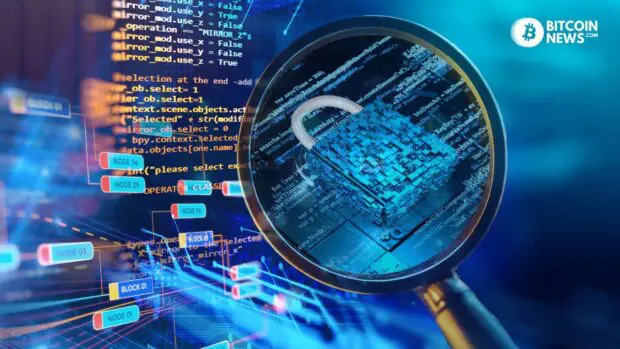Blockchain forensics enables unprecedented surveillance into people’s financial lives, with profound implications for privacy rights. Sophisticated chain analysis tools can de-anonymize users and map entire transaction histories, often without accountability, transparency, or contestability.
This level of invasive tracking should deeply concern those who care about privacy. However, it is unclear how accurate many of these tools are.
Related reading: Chainalysis: No Scientific Evidence The Surveillance Software Works, According to Head of Investigation
Blackbox Tools
A recent case against Roman Sterlingov is challenging if Chainalysis’ black box software is actually as effective as promised. As noted by Wired:
“In the spring of 2021, Roman Sterlingov, a 33-year-old Swedish-Russian national, was arrested by Internal Revenue Service criminal investigators at the Los Angeles airport and was accused of creating and operating Bitcoin Fog, a bitcoin “mixing” service on the dark web that took in coins from its users and returned others with the intention of preventing forensic accountants from following that money’s trail.”
Later in the article it is noted that Sterlingov’s lawyer said:
“[…] that the defense hasn’t received any details of that blockchain analysis and points out that it was left out of the most recent superseding indictment against Sterlingov, which was filed last week.
That means, he argues, that the government has based the core of its case on an unproven, relatively new form of forensics—one that he says led them to the wrong suspect.
“Has it been peer-reviewed? No,” Ekeland says of blockchain analysis. “Is it generally accepted in the scientific community? No. Does it have a known error rate? No. It’s unverifiable. They can say total nonsense, and everyone has to take it on faith.””
Privacy as a Human Right in the Digital Age
While blockchain forensics is critical in fighting financial crimes, it’s essential to acknowledge that privacy is an absolute human right. Users of digital currencies, particularly Bitcoin, which is pseudo-anonymous, should be aware of privacy-enhancing techniques.
Tools like CoinJoin, which allow for increased anonymity in transactions, are vital for those prioritizing privacy. It also helps to always generate a new public key when receiving bitcoin.
Role of Financial Institutions
Financial institutions are increasingly integrating blockchain analytics, using forensics tools to monitor and detect suspicious activities. To work in the financial industry, companies must undergo a lot of regulations, so it makes sense that these companies would want to prevent bad actors from doing illegal things on their platforms.
While these tools can play a role in preventing money laundering, they should also respect individual privacy, adhering to the principle that privacy is not contradictory to security. Lack of privacy can have horrible consequences for people’s life and well being.
Law Enforcement and Blockchain Forensics
Blockchain forensics tools grant law enforcement unprecedented surveillance powers over private financial data, with profound implications for civil liberties. While these technologies can help investigate crimes involving cryptocurrencies, their invasive tracking capacities could ultimately undermine core Constitutional protections.
Related reading: Iranian Parliament Warns Central Bank: CBDC Project Unlawful And Unconstitutional, Must Be Halted
In particular, “innocent until proven guilty” presumes a right to privacy free from unreasonable government intrusion. However, blockchain analysis tools increasingly enable fishing expeditions trawling through transaction histories in search of yet-unknown “crimes” often resulting in marginalized communities facing disproportionate targeting.
Therefore, oversight and strict legal controls are absolutely vital. Law enforcement should be required to demonstrate significant evidence of existing criminal behavior before utilizing such incredibly invasive tracking measures, rather than simply speculating that “bad actors” might be identified.
Mass surveillance must not become the norm. If accountability, transparency, and contestability are lacking, blockchain forensics risks normalizing a world where all financial data is perpetually monitored, analyzed by opaque algorithms, and stored for future investigations. This is anathema to presumptions of innocence and respect for civil rights.
Related reading: Chainalysis Claims to Track Bitcoin Through Mixing Service CoinJoin
Open Source Contributions
Maintaining financial privacy is certainly a challenge in an increasingly surveilled world. But for blockchain analysis, open methodologies can help by enabling public scrutiny, contestability, and honesty about inherent tradeoffs.
With proper oversight and safeguards against potential overuse, blockchain forensics need not necessarily undermine civil liberties, and open tools are a step in a better direction. In contrast, black boxes like Chainalysis treat blockchain analysis as an absolute good for law enforcement. While also disregarding the need to be transparent about how they track things.
The world is not a better place when governments and exchanges erode financial privacy rights through invasive trackings with black box tools. Tragically, dependence on such black box proprietary systems has wrongly landed innocent individuals in prison, like Roman Sterlingov. Without transparency or accountability, abusive prosecutions enabled by faulty hidden algorithms will continue unchecked, a profound injustice to civil liberties.
Smart Contracts and Legal Implications
The advent of smart contracts adds complexity to blockchain forensics. Legal professionals must navigate the privacy implications inherent in the analysis of smart contracts, ensuring that such investigations do not breach individual privacy rights.
The Future of Forensic Experts
Maintaining integrity of financial systems is crucial. However, we must thoughtfully balance this against core Constitutional protections like presumptions of innocence, requirements for probable cause, and respect for private data.
Currently, many blockchain analysis tools enable unprecedented mass surveillance, tracking all users by default without appropriate safeguards. This treats lawful behavior as inherently suspect. Blockchain forensics experts have a profound ethical responsibility. Technical skills must be matched with wisdom to carefully weigh complex tradeoffs instead of blindly supercharging state monitoring capacities.
Designing transparency, accountability, and contestability is vital so analyses can be questioned. Privacy-preserving approaches like selective revelation are also critical. With great expertise comes great responsibility.
We need our brightest minds crafting solutions that synthesize security, crime prevention, openness, and liberty for all. The alternatives risk normalizing a dystopian panopticon. We cannot allow invasive financial surveillance to define the future of Bitcoin.










